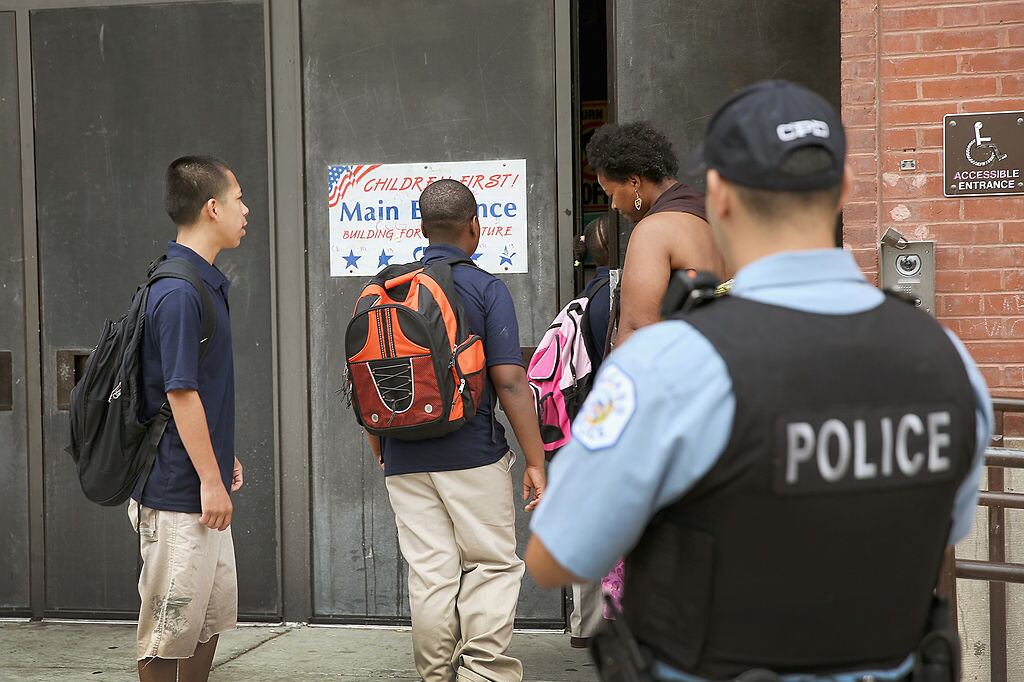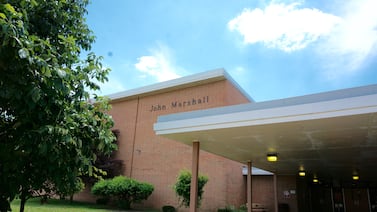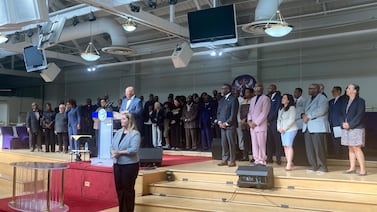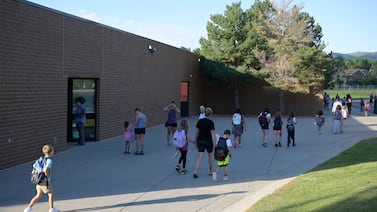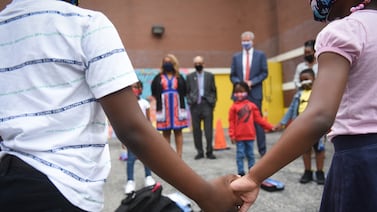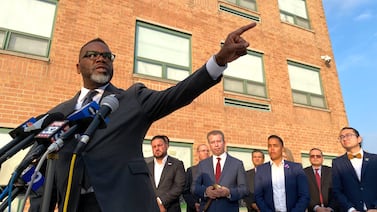An effort to remove police officers from Chicago’s public schools failed Wednesday after board members voted against terminating a contract with the city’s police department.
It was a close vote — with four board members voting in favor and three against — but the question will come up again before school begins in the fall, when the board will vote on whether to extend the $33 million school police contract.
That means the future of Chicago’s school police program is far from decided.
Mayor Lori Lightfoot had opposed the wholesale removal of police officers from schools, saying she preferred to leave the decision to individual school councils. School leaders, speaking Wednesday, promised further reforms before next school year.
But youth activists said that while the measure failed, they were encouraged by the close vote and the chance of another soon. “That signals a potential for change,” said Denise Carmona, a youth organizer with the Brighton Park Neighborhood Council who graduated from Kelly High School in 2019 and listened to the board meeting from a rally outside of Board President Miguel Del Valle’s home.
Wednesday’s board vote came after an unusually emotional discussion where board members weighed their personal experiences with policing and violence in schools against their concern for students’ safety.
“Our schools should be places of nurture,” Elizabeth Todd-Breland who, along with Amy Rome, put forward the original motion. Instead, she said, board money is used to pay for tasers and patrols. “Reforming school resource officers is not enough.”
Board members who voted against the measure spoke of their experiences of feeling unsafe in school — of the psychological scars of being beaten by gang members in a school basement, of fearing that you will be harassed both by the rival gangs inside school and the police officers outside of it.
Board member Dwayne Truss, who voted against the measure, said communities “under siege by gun violence” need police protection. “This helps create an environment of safety for the students,” Truss, a longtime community activist on the West Side and the father of five Black men, said.
All of the board members agreed on the need for a change to school safety, but were divided on how to make that change happen. Some, including Truss, Del Valle, and Luciano Sotelo, argued that, even if some police interactions are negative, the officers should remain in schools if their presence contributed in any way to a safe school environment.
Others, including Todd-Breland and Rome, pointed to the disproportionate arrest of Black students to argue that the system was broken. They said that the Chicago Police Department’s recent failures to meet most of the reforms laid out by a federal monitor showed that incremental change wouldn’t work.
“This is a deep institutional problem... it is not enough to reform or make a better trained or kinder school to prison pipeline,” Todd-Breland said, noting that some students in Chicago had been asking for police to be removed from schools for more than a decade.
As the board discussed the contract, two rallies Wednesday called for an end to school policing. One, led by the Chicago Teachers Union, included a car caravan downtown. The other, led by youth activists, kept up a steady stream of noise and chanting outside Del Valle’s house.
The board will have another chance to discuss the issue when the contract comes up for a renewal vote in July or August, district leadership said Wednesday.
That fact may have been a decisive one for board member Sendhil Revuluri, who appeared split on the issue. He confirmed with school leadership that there would be another chance to weigh in before casting a vote against the measure. “We are long overdue for imagining what safety looks like in our schools, and we need to do that,” he said.
Next week, the city council will hold a hearing on school police.
Organizers who have led the movement against school police, many of whom rallied throughout most of the meeting leading up to the vote, said Wednesday that they are disappointed but not slowing down.
After listening to the board vote, Brenda Leyva, a Roosevelt student and organizer with youth group VOYCE, said she felt “really mad.”
She felt more hopeful a few weeks ago, when a march against school police in Albany Park that she helped organize brought out several hundred people.
Now, she plans to put her anger toward planning another: “It hasn’t been a new thing, so I am going to make another protest, to keep everyone aware.”

